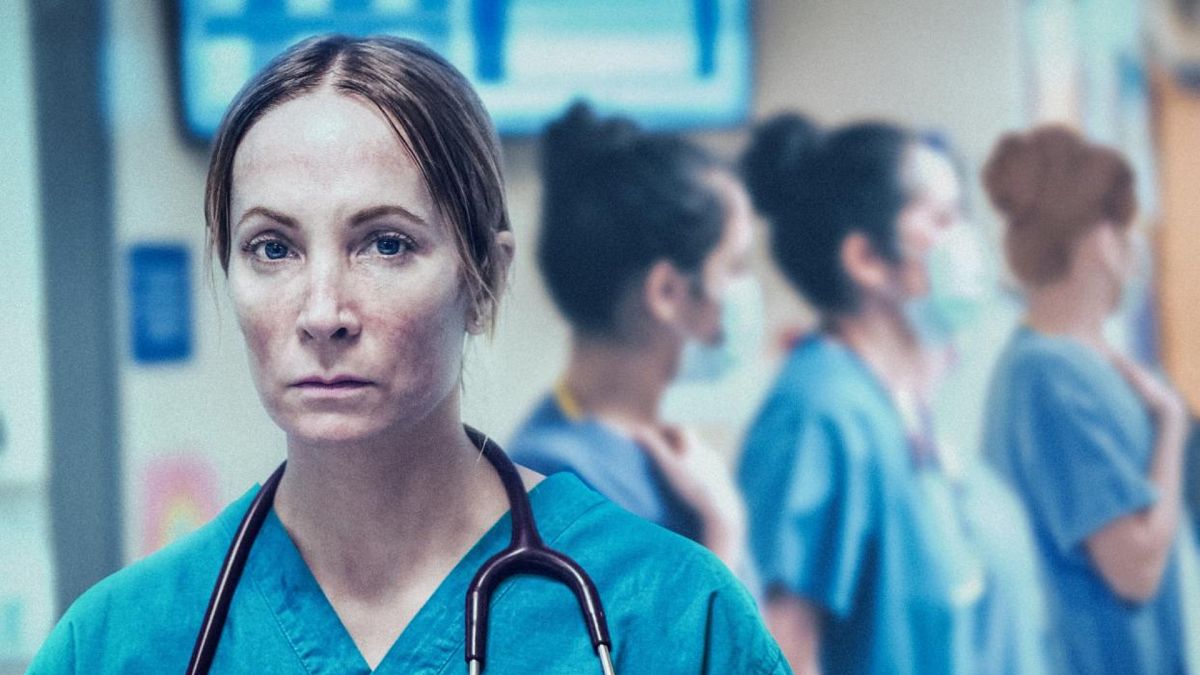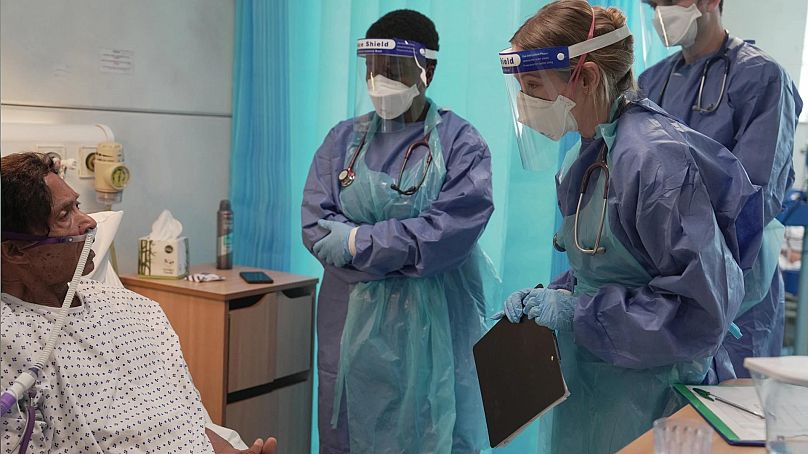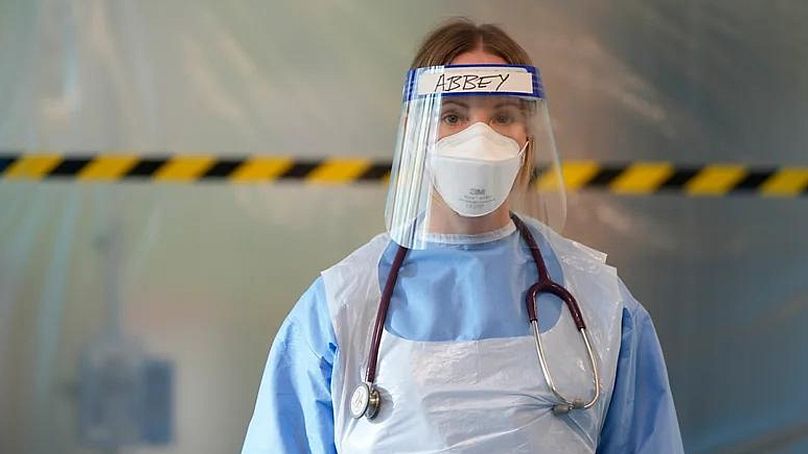A new British drama looks at life inside the nation’s health service during the early days of the Covid-19 pandemic.
To date, nearly 200,000 people have died of Covid-19 in the UK. It’s an astonishingly high figure for the virus that came to the shore in the first months of 2020. The new three-part drama ‘Breathtaking’ on ITV takes viewers inside the healthcare system to witness how doctors desperately tried to keep up with a rapidly spreading virus against inert government advice.
The show is based on the book ‘Breathtaking: Inside the NHS in a Time of Pandemic’ by British palliative care doctor Rachel Clarke. During the pandemic, she took note of her experiences within the UK’s National Health Service (NHS).
Originally intended as a private journal of the NHS’s overwhelm by the novel virus, Clarke was spurred on to publish the novel as she saw the hypocrisy of the UK’s governing officials who were supposed to deal with the crisis – notably when the lockdown trip to Barnard Castle by then-Prime Minister Boris Johnson’s advisor Dominic Cummings was revealed.
The show has also been written by fellow doctor-writer and actor Prasanna Puwanarajah as well as Jed Mercurio, known for ‘Line of Duty’. It’s a rap sheet that brings a lot of heft in terms of screenwriting and direct NHS experience.
The result is a searing drama that is enraging to watch. Joanne Froggatt plays Dr. Abbey Henderson as she faces the terrifying influx of Covid-19 patients to her hospital in the two weeks leading up to the UK’s first national lockdown.
It’s early March 2020 and the virus originating in Wuhan, China has already rapidly spread across Italy. Patients with a travel history from China and other affected regions displaying respiratory symptoms consistent with Covid-19 are being isolated in “hot zones” in the hospital.
But patients without a travel history to China are coming in short of breath. Henderson and her colleagues want to treat them as suspected Covid-19 cases, but the hospital won’t let them. Anyone without a travel history is stuck in the cold zones, where they can’t receive a Covid test, nor can doctors or nurses use personal protective equipment (PPE) that is reserved for the hot zones.
As increasingly more patients in the cold zones are obviously suffering from Covid-19, Henderson appeals to her superiors that these zones are now rife with the virus, that patients not from travel zones should be considered Covid risks, and that all staff need PPE.
Her appeals are met with a staunch rejection. The government guidelines are clear that the virus is contained and that PPE isn’t required by anyone outside of the hot zones. This is now days before a national lockdown.
All this drama unfolds interspersed with clips and audio clippings from the politicians at the time (chiefly Johnson) assuring the public that the virus was under control.
The drama takes an excruciating Kafkaesque shift when we see Dr. Mark Prentiss (Mark Dexter), the doctor in charge of the hospital reporting Henderson and her colleagues’ concerns to his own seniors, only for him to be rebuffed with the same impassive rejection he earlier relayed to his hospital. Public Health England (PHE) has recommended limited use of PPE, and assures the virus hasn’t spread.
The Kafkaesque knife is then twisted as Henderson herself is confronted by nurses concerned about the lack of PPE. In an attempt to stymie panic, she finds herself repeating the same empty assurances her superiors made.
Henderson and the doctors and nurses on the frontline are obviously right. The first episode ratchets up the tension as it represents the real events of March 2020 in the UK. Hospitals are overrun with patients suffering from Covid-19. There aren’t enough beds, ventilators or doctors. There isn’t even enough oxygen.
Memories of the early months of the pandemic where ambulance sirens rung through the night, people feared close contact, and death was omnipresent make ‘Breathtaking’ a tough watch. It’s a taut drama intended to expose how the Conservative government’s – the right-wing party in power since 2010 – underfunding of the NHS and mismanagement of the pandemic led to the highest number of deaths in Europe besides Russia.
‘Breathtaking’ also comes quickly after the wildly successful ‘Mr Bates vs The Post Office’, also on ITV, that dramatised the UK Post Office scandal, where over 900 postal workers were wrongly accused of theft due to a faulty computer system built by Fujitsu and covered up by the Post Office.
While the UK Post Office scandal had been a topic for journalists and MPs, the ITV drama pushed it into the public eye to another degree. The increased public scrutiny has put the Conservatives under increased pressure to actually make good on their promises of compensation.
Will ‘Breathtaking’ be able to pull off the same trick for the NHS? Over 2023, the government underwent a Covid Inquiry into its mismanagement of the pandemic, from the selling off of PPE contracts for personal profit to chaotic politicians acting without scientific advice.
Now, junior doctors are going on strike in the country again as the government refuses to budge on their demands for pay to be upped in line with the cost-of-living crisis. Watching the horrors of what doctors had to deal with in the pandemic, it’s hard not to be sympathetic. The conclusion of ‘Breathtaking’ is clear. It’s not the pandemic that killed Britons. It was the government.





